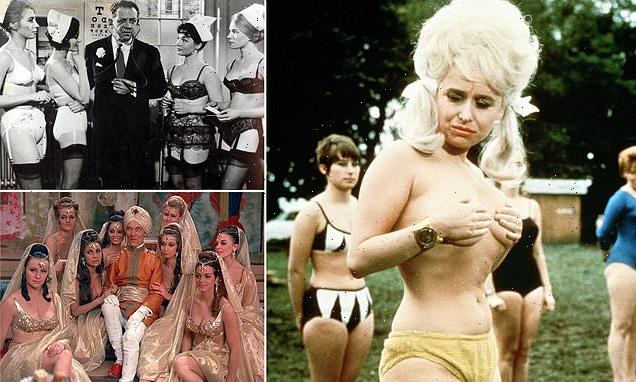“I’m just a Black dude who is living his version of the American dream,” Anthony Anderson’s character, Andre “Dre” Johnson, announces in the Season 8 finale of ABC’s “Black-ish.” His statement signals the Johnson family’s accomplishments and adjustment over the show’s groundbreaking run of 176 episodes, which exceeded the expectations of all concerned, not least creator Kenya Barris. “At first, I was hoping for a second episode,” he admits.
He also never saw “Black-ish” becoming both a landmark TV comedy series and a cultural touchstone. To date, the show has garnered 42 NAACP Image Awards amongst 70 nominations, 25 Emmy nominations with a contemporary hairstyling win, a Peabody, a 2015 Television Academy Honors award and a Golden Globe for Tracee Ellis Ross.
“Black-ish” won acclaim for tackling tough topics head on, including police brutality, using the N-word, being biracial, Black hair and Juneteenth’s significance, while always facilitating laughter amidst nuanced conversation. Throughout, the writers gave each Johnson family member hopes and aspirations of their own. Dr. Rainbow “Bow” Johnson (Ross), Zoey (Yara Shahidi), Andre “Junior” (Marcus Scribner), twins Jack and Diane (Miles Brown and Marsai Martin) and newest arrival Devante (August and Berlin Gross) weren’t just add-ons to Dre’s life. Each actor was allowed to explore and grow their character beyond the vision of the writers, including Dre’s live-in mom Ruby (Jenifer Lewis) and “Pops” (Laurence Fishburne), who begin the show estranged before reuniting.
The series, which celebrated its finale at the Smithsonian National Museum of African American History and Culture, also spawned a hit spin-off series in Freeform’s “Grown-ish,” with Junior’s college journey following Zoey’s in its upcoming Season 5. “Black-ish” also featured cameos from the likes of Michelle Obama, Zendaya, Regina Hall, Mary J. Blige and, in the final episode, gymnast Simone Biles, whose advice to Dre to follow his heart allowed for a realization of the couple’s desire to move back to a predominantly Black neighborhood to raise Devante.
Ross, also credited as a writer/producer/director, says she was “intrigued by” her character.
“She was a mother, wife, doctor and I was really interested in breathing life into that,” Ross reflects. She won respect by advocating for Bow on set, using her own perspective as an educated Black woman to add notes such as, ‘Why is Dre coming home from work and I’m chopping vegetables? Can I have a computer or a book?’ And she wasn’t alone in drawing attention to detail and realism as essential aspects of character development.
“We would talk about what we like, didn’t like, why we didn’t like it,” Ross explains. “And then we, they, would change the script, work it or explain why it made sense.”
Showrunner and executive producer Courtney Lilly hopes those learning from the “Black-ish” legacy will imbue their own casts with the same agency. “Everyone got to say their point of view and you got to hear it out loud,” he says.
Barris’ goal was always to present a successful, loving family with everyday issues specific to its Black experiences but with universal significance. “‘Black-ish’ was grounded in a family that loved each other,” explains Lilly. Ross adds, “This was a couple [Dre and Bow] that was based in love, and was not just surviving, but thriving.”
The Johnson kids, meanwhile, grew up on “Black-ish” in every sense. “Seeing Marcus, Yara, Marsai and Miles evolve and grow into such incredibly talented, gifted comedic and dramatic actors is what elevated the show,” Lilly raves. Fishburne concurs, “All of them have gotten better and better.”
The stories got better as well. “Black-ish” “changed the way” Lilly viewed them and their “potential.” And over time, the show moved from having to explain Black life — or as Lilly terms it, “the Black experience for the white gaze” — to just living it. “Not saying that’s what we were doing at the top [of the show],” he says, “but it stopped being as much of a thing by the time we got to the end. I would love for the show to have an influence on future generations of television writers. Ours didn’t want to tell the audience what was right or wrong but rather to present various perspectives.”
In Season 6’s Emmy-winning “Hair Day” episode, for example, Diane contemplates straightening her hair, as part of a wider cultural conversation about the discrimination faced by those sporting traditional Black hairstyles. It aired months after California passed legislation barring such discrimination in schools and the workplace, prompting a majority of U.S. states to enshrine or initiate similar protections.
As both an actor and executive producer, Fishburne highlights further aspects of the “Black-ish” legacy, emphasizing that the show opened the door for women and all people of color. “The greatest blessing for me is that we have created opportunities for people both in front of and behind the camera. You come onto our sets and you see a kind of diversity that is rare to see in our industry.” Tellingly, the “Black-ish” family rejected an extended finale runtime for a single extra minute to credit the entire crew (many of whom grace the Johnsons’ “Homegoing” celebration street party scene).
Where Dre began the pilot episode saying, “I guess for a kid from the hood, I’m living the American dream,” he ends noting his personal interpretation of “the American dream” has shifted as the seasons progressed. Barris experienced a similar shift, telling the audience at April’s PaleyFest salute: “Thank you for changing what I believed at first: I needed to be accepted by everyone. I began to realize I need to be accepted by us.”
His overall takeaway from “Black-ish” is also introspective. “I learned to love myself,” he declares. “Hopefully, [the show] taught people at home, white, Black, LGBTQ+, Asian or brown, to love yourself, love your family.” Lilly’s is different but complementary: “It’s an idea of making an independent choice that allows you to feel prosperous,” he concludes.
Anderson, who is also credited as an executive producer/director on the show, agrees the series leaves behind a legacy worth applauding. “We were met with some criticism about the title of our show,” he says with a smile. “But looking at it now, eight years later, could it be called anything else?”
Source: Read Full Article


